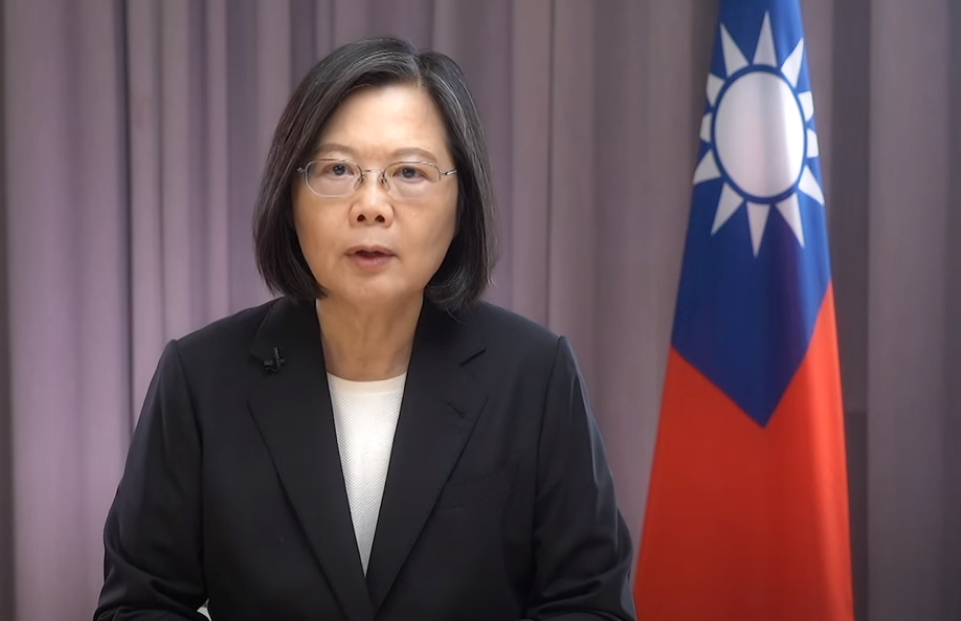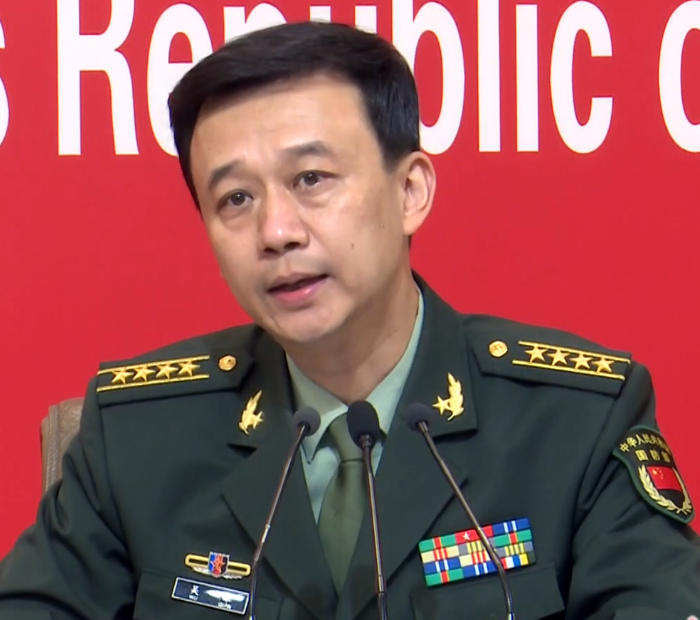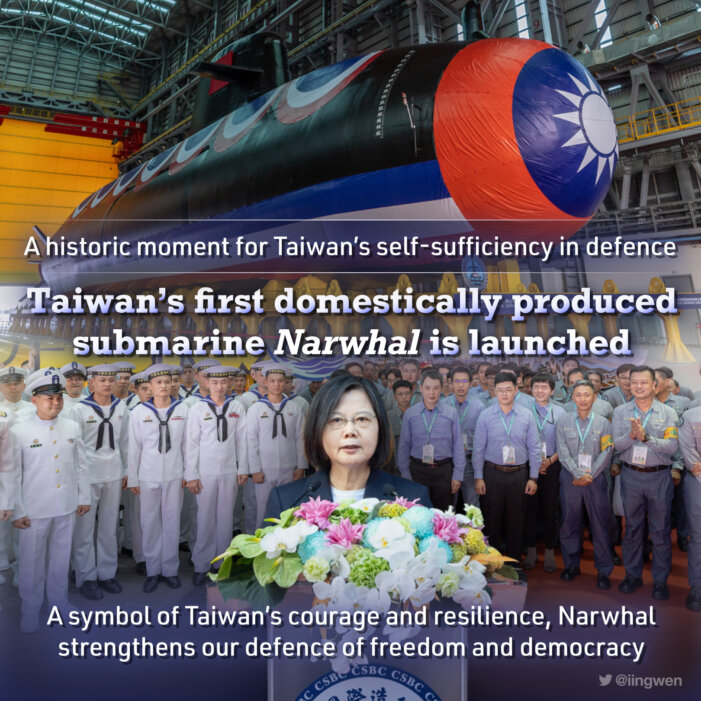A Strategic Move in Maritime Defense
In a significant move that underscores Taiwan’s commitment to bolstering its naval capabilities, President Tsai Ing-wen unveiled the island nation’s maiden domestically-produced submarine at a grand ceremony in the port city of Kaohsiung on Thursday.

“Once deemed an unattainable dream, today we stand witness to a submarine, a testament to Taiwanese ingenuity and determination, right before our eyes,” declared President Tsai. She further emphasized the strategic importance of the vessel, stating, “This submarine is not just a marvel of engineering but embodies our unwavering resolve to safeguard our nation. It plays a pivotal role in our navy’s strategy, enhancing our asymmetric combat prowess.”
The United States, a staunch ally of Taiwan, has consistently advocated for the island to adopt asymmetric warfare techniques. This involves investing in agile and compact weaponry, with the new reduced-size submarine being a prime example.
Cheng Wen-lon, the chief of CSBC Corp., the firm at the helm of the submarine’s construction, candidly shared the challenges faced during its creation. “While our efforts over the past years might have seemed silent, it was by no means a smooth sail,” he remarked during the event at CSBC’s shipyard.
After a meticulous seven-year design and construction phase, the submarine, christened ‘Hai Kun’—inspired by a mythical Chinese fish of legendary magnitude—will undergo rigorous testing in the harbor before venturing into open waters. Only upon successful completion of both harbor and ocean trials will the submarine be commissioned into the military. Furthermore, Taiwan has ambitious plans to construct an additional submarine, with an aim to have both vessels operational by 2027, as reported by the semi-official Central News Agency.
Taiwan’s endeavor to build its own fleet of submarines was born out of necessity, as Beijing’s economic and diplomatic clout hindered its attempts to procure such vessels from international markets. The rising tensions in the region have been palpable, with China intensifying its military activities around Taiwan.

In a stern response to Taiwan’s latest achievement, China’s Defense Ministry warned of the island “charting its own annihilation.” Col. Wu Qian, a spokesperson for China’s Ministry of National Defense, asserted, “Regardless of the arsenal amassed by the Democratic Progressive Party, it won’t deter the inevitable reunification with the mainland.”
Col. Wu also downplayed recent Chinese military exercises near Taiwan, labeling them as routine and part of an annual agenda aimed at assessing troop efficiency and inter-branch coordination.
Notably, the ceremony saw the presence of key international figures, including Sandra Oudkirk, the head of the U.S. de facto embassy, and representatives from the Japanese and South Korean trade delegations stationed in Taiwan.

